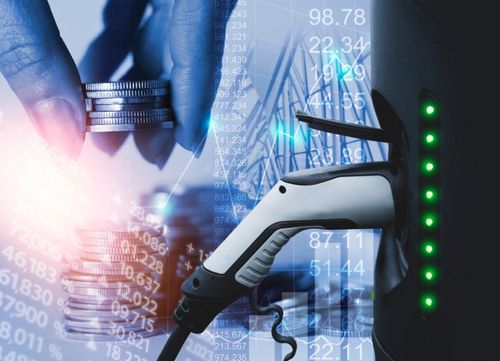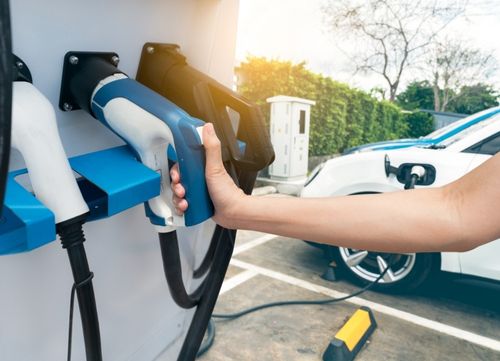Recent research from iCompario reported on by Fleet News indicates that around 24% of fleets have already switched to fully electric or hybrid electric vehicles. A further 15% meanwhile are in the process of doing so, and another 8% are in the early stages of planning to make that change.
That means almost half (47%) of fleets currently have an active interest in moving to greener vehicles – a number we expect will only increase as we near the EU’s first deadline in 2025 for fleet CO2 emission reductions.
If you’ve gone electric, you’re probably already wondering what rising energy prices mean for your fleet. And if not, then the question ‘how will energy prices affect fleet costs’ should still be of interest.
Either way, thankfully the answer to that question is: less than you might fear.

Despite the recent increase in energy prices, the government’s 34p/kWh Energy Price Guarantee means charging an electric vehicle at home – or indeed, at your fleet’s home depot – is still considerably more cost-effective than running a petrol or diesel vehicle.
For example:
When considered based purely on home charging vs forecourt fill-ups, daily running costs for EVs are still very obviously lower.
Better still, company car drivers who opt for a specialist EV tariff can get a huge discount on their off-peak energy, with one provider offering 7.5p/kWh for overnight charging – a choice that’s sure to lower fuel expenditure even further.
One thing that’s yet to change is the government’s advisory electricity rate (AER); the rate at which fleets are recommended to reimburse drivers for charging costs. Currently it’s set at only five pence per mile (5ppm) – far below the 11ppm it costs for a vehicle that averages around three miles per kWh.
In essence, fleet drivers currently lose money on charge ‘fuel’ expenses claims, in a way they don’t for petrol and diesel expenses – at least if your fleet follows the recommended amount. (And if you pay drivers more, substantiating the costs to the taxman could be tricky). Fleet News reports that most fleets claim an AER rise to 15ppm would be sufficient – and we quite agree.
The real elephant in the room when it comes to how energy prices will affect fleet costs is rapid charging. In late September the RAC reports that the cost of charging an EV on the go in a hurry had gone up by 42% across the preceding four months, reaching an average of 63.29p per kWh. That’s considerably more than the government’s 34p/kWh home electricity cap, and more than eight times greater than the 7.5p/kWh EV tariff charge we’ve mentioned above.

It’s clear, then that fleet owners would do well to use route planning software and factor in tools like Zap-Map to plan journeys with the most cost-effective rapid charging solutions. Even so, if you run a fleet, you’ll be encouraged to know this is incredibly doable, and that in many cases rapid charging itself is likely to account for just a small proportion of your fuel expenditure – especially considering the ongoing cost disparity between EVs and ICE vehicles in favour of electric vehicles.
If you’re in the 53% of fleets who are yet to act on going electric, we have the perfect solution.
Our award-winning e-Start initiative offers a full end-to-end zero emissions vehicle transition plan for your entire business, helping you manage your budget at every stage of the switch.
To learn more, visit our eStart page and check out the blogs below. Alternatively, you can call us on 0344 854 5100 or email CSalmon@sgfleet.com.